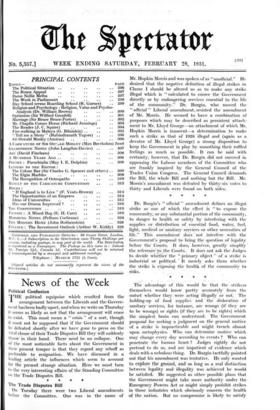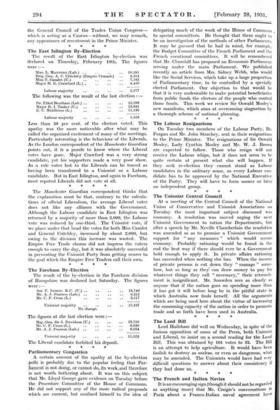The advantage of this would be that the -strikers themselves
would know pretty accurately". from the outset whether they were acting illegally" or' not The holding-up of food supplies and the dislocation of sanitary services, for instance, are wrongs (if they are to be wrongs) or rights (if they are to be rights) which the simplest brain can understand. The Government proposal for seeking a judgment on the general motive of a strike is impracticable and might trench almost upon metaphysics. Who can determine motive which may change every day according to events ? Who can penetrate the human heart ? Judges rightly do not pretend to do so, and are impatient of evidence which deals with a nebulous thing. Dr. Burgin tactfully pointed out that his amendment was tentative. He only wanted to en-plop the ground, and so long as a vreal distinction between legality and illegality was achieved he would be satisfied. He suggested as other possible plans that the Government might take more authority under the Emergency Powers Act or might simply prohibit strikes in those industries which obviously concern the health of the nation. But no compromise is likely to satisfy the General Council of the Trades Unign Congress— which is acting as a CaUeus—without, we may remark, any appearance of resentment in the Prime Minister.












































